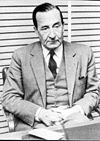Argentine general election, 1963
|
|
|||||||||||||||||||||||||||||||||
|---|---|---|---|---|---|---|---|---|---|---|---|---|---|---|---|---|---|---|---|---|---|---|---|---|---|---|---|---|---|---|---|---|---|
|
|||||||||||||||||||||||||||||||||
|
476 members of the Electoral College 239 votes needed to win |
|||||||||||||||||||||||||||||||||
|
|||||||||||||||||||||||||||||||||
|
|||||||||||||||||||||||||||||||||
José María Guido
UCRI
Arturo Illia
UCRP
The Argentine general election of 1963 was held on 7 July. Voters chose both the President and their legislators; with a turnout of 85.6%, resulting in the election of Arturo Illia as President of Argentina.
The spectre of military intervention so much in evidence after the election of Arturo Frondizi in 1958 became reality following his coerced March 29, 1962, resignation. His UCRI candidates had done well; but the evening's big surprise, Andrés Framini's election as Governor of Buenos Aires Province (one of ten Peronists to win gubernatorial polls that night), proved unacceptable to the armed forces. An array of political leaders had been lobbying the military against Frondizi, as well: centrist UCRP leader Ricardo Balbín (whom Frondizi defeated on a splinter ticket in 1958) and conservative economist Álvaro Alsogaray (whom Frondizi sidestepped in favor of pro-industry economist Rogelio Julio Frigerio) both openly celebrated the president's unceremonious exit.
The matter of Frondizi's successor, itself, became a subject of contention within the armed forces. The two opposing camps defined themselves as either "Blues" ((Spanish) Azules, at pains to maintain a patina of legality over the destabilizing intervention) or "Reds" ((Spanish) Colorados, lacking any compunction against imposing a prolonged and repressive dictatorship). The stalemate lasted merely a day because most of the Army High Command were "Blues," whose preference of a "legal" solution to the vacuum was supported by most of the press and the Argentine public, then enjoying Latin America's widest access to the media. Relying on constitutional guidelines, they named the reluctant Senate President José María Guido Head of State.
...
Wikipedia



